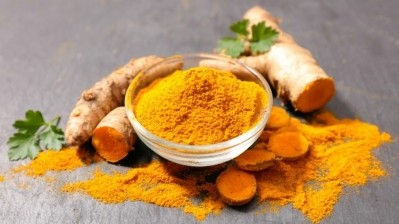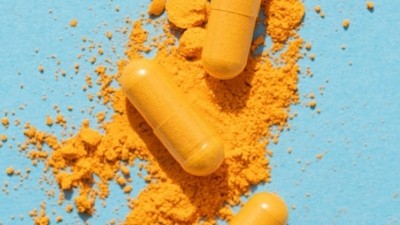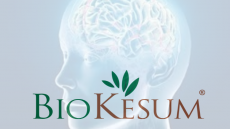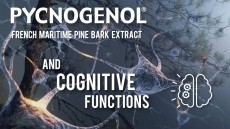Encapsulated curcumin improves cognitive, locomotive function in mild dementia patients – six months RCT

Writing in Frontiers in Dementia, the study was conducted by researchers from India, including Akay Natural Ingredients, Alzheimer’s and Related Disorders Society of India, Cochin University of Science and Technology, and Centre for Excellence in Neurodegeneration and Brain Health.
The study involved 48 participants between 55 and 75 years old and are experiencing moderate dementia.
They were randomised into three groups, taking either 1) curcumin encapsulated within fenugreek mucilage using a self-emulsifying hydrogel delivery system and sold in the market under the name CurQfen, or 2) an unformulated standard curcumin complex with 95 per cent purity, or 3) the placebo.
A sachet containing 400mg of the test substance was taken by the participants with water twice per day for six months.
The Mini-Mental State Examination (MMSE) and Geriatric Locomotive Function Scale (GLFS) were used as the primary tool in assessing the changes in their conditions.
Out of 30 points, one is considered as having dementia with a MMSE-score of below 24. The lower the score, the more severe the onset of dementia.
As for GLFS, the higher the score, the higher the locomotive impairment.
Significant improvements in MMSE and GLFS were reported in the group taking CurQfen.
For example, the MMSE score for the CurQfen group significantly increased from 16.07 ± 1.81 to 19.27 ± 1.67.
In contrast, the MMSE score also significantly decreased in the placebo group from 16.09 ± 1.86 to 13.81 ± 1.72.
No significant increase was seen in the group taking unformulated standard curcumin complex.
The increase in MMSE score for the CurQfen group was also significantly higher than the other two groups – a 19.09 per cent increase as compared to the unformulated standard curcumin complex and a 39.53 per cent increase as compared to the placebo.
As for GLFS scores, the CurQfen group showed a significant reduction from 16.92 ± 2.01 to 12.71 ± 1.63 – a reduction of 25.60 per cent as compared to the baseline.
No significant change was seen in the group taking placebo and unformulated standard curcumin complex.
CurQfen is said to produce significant improvements as the encapsulation technology used could increase the bioavailability of curcuminoids, in turn improving absorption in the body.
“The primary outcome of our study is nothing short of remarkable. Volunteers who received CurQfen® demonstrated significant improvements, both in cognitive and locomotive functions.
“These advancements were assessed using the validated MMSE and GLFS-25 questionnaires and stood out in comparison to those who received standard curcumin complexes or placebos.
“These transformative changes in our study outcomes suggest that CurQfen® plays a pivotal role in slowing the progression of dementia, a revelation that spurred us to delve deeper into the realm of biochemical markers," said principal investigator Dr Baby Chakrapani P.
The trial is funded by Akay Natural Ingredients which developed the patented CurQfen used in the study.
Existing studies, including one published in 2020, already showed that curcumin, the yellow pigment in turmeric, possesses anti-neuro-inflammatory effects and could stimulate hippocampal neurogenesis and synaptogenesis.
Changes in biomarkers
Blood samples were also taken to measure the changes in biomarkers levels related to neurodegeneration, and significant improvements were seen in the CurQfen group.
Biomarkers that are usually found in abnormally elevated levels in AD patients, including amyloid β42, tau protein, and proinflammatory cytokines IL-6, TNF-α related to neuroinflammation, were measured.
Findings showed significant reduction in tau proteins and amyloid β42 levels, alongside an increase in BDNF in the CurQfen group.
For instance, the CurQfen group showed 23.26 per cent reduction in amyloid β42 when compared to the placebo and 16.02 per cent reduction compared to the unformulated standard curcumin complex.
BDNF plays a pivotal role in cognition and neuronal survival, and low levels are linked to memory loss in various neurodegenerative conditions and age-related cognitive deficits.
“In the current study, we investigated the relative changes in cognitive and locomotive functions and serum markers, including BDNF, tau protein, Ab42, IL-6, and TNF-a, during the study period of 6 months.
“The results were promising, with considerable changes from the baseline values of the parameters tested. These results suggest that CGM may be of significant benefit in slowing down the progress of dementia and in further ameliorating the symptoms compared to the placebo,” the researchers concluded.
“These findings have fuelled our motivation to press forward with another large-scale Randomised Controlled Trial (RCT) dedicated to dementia research," added Frederik Errebo, head of nutraceuticals at Akay (Part of Oterra group).
Source: Frontiers in Dementia
Influence of CurQfen®-curcumin on cognitive impairment: a randomized, double-blinded, placebo-controlled, 3-arm, 3-sequence comparative study.
DOI: 10.3389/frdem.2023.1222708
Authors: Das SS and et al.


















